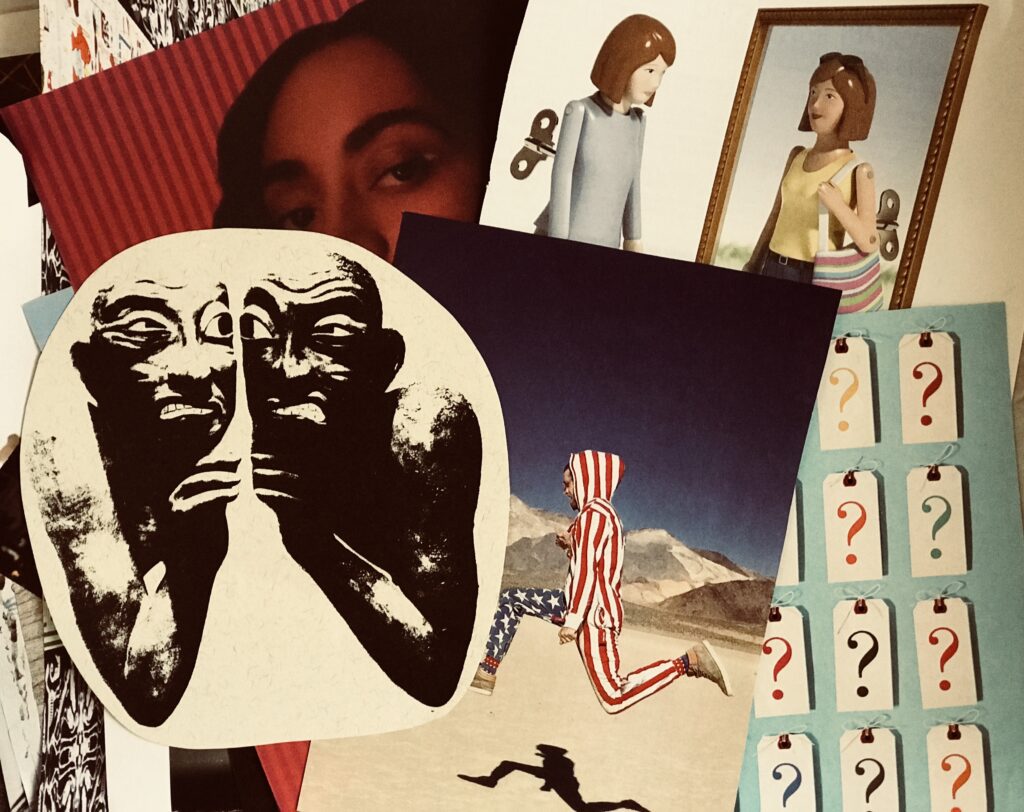Secrets and False Selves

Searching for the ‘Real You’
“…false You’s – the imitative You, the too-clever You, the Avoiding You – and (how to) settle into that (sometimes, at first, disappointing) beast, Real You. Real You is all you have, and all other paths are false. And in the best case, Real You is so happy to finally be recognized, it rewards you with Originality…” George Saunders, Writer
Have you ever wished you could be someone else? Or felt a disconnect between how you feel inside versus how you are perceived? I certainly have, and work with many people who grapple with who they are in relationship to their body image, emotional struggles, sensitivity, sexual orientation, cultural or family background, financial situation, habits or addictions – and the list goes on. It can be so difficult to accept who we are especially if it is causing us pain, making us feel different, or unloved. People often jump hoops to adjust the truth because they imagine they will be judged and cast out based on how they feel, who they love or what they value. These days I find that the stakes can feel even higher in our social media driven culture where looking good, being successful, interesting and/or having a strong opinion and political stance is deemed as ‘right’ or ‘wrong’. It causes a lot of opportunities for inner and outer criticism and further disconnection from what is real inside.
One of the things that is fundamental in my work is creating an environment of unconditional acceptance, and laying a foundation for people to feel safe to share their secrets, insecurities and beliefs that are distorting the ‘Real You’. I have found that the deeper our secrets are, the stronger shame becomes. Since I work with the arts and the wisdom of the body, I am armed with potent tools for healing that reveal truth accompanied by compassion and understanding.
As a creative person I am often in a process of investigation. I use art to help me learn more about what I don’t understand or what interests me. Starting with a list of questions can bring me into artistic work. I am not focused necessarily on finding the answers because staying with the inquiry is a potent place. When I work with people in a therapeutic or coaching context it is a similar process. I am curious about the person in front of me, what gets them up in the morning, what they love and care about, where they feel stuck. I don’t need to have the answers and they don’t either, but instead we stay present and curious with what is actually happening in life, how they are responding to it, and what is most alive in the moment. This in turn can provide insights and release in therapy and it can also create amazing art. The writer James Baldwin said, “The purpose of art is to lay bare the questions that have been hidden by the answers.”
While writing this blog, I started to dig into more quotes by Baldwin, who was a novelist and social critic during the civil rights movement. So many of his quotes were hitting me in the gut, and I felt stirred by his insistence on facing the truth inside himself, in writing and in society. I was especially affected by these:
- “We are cruelly trapped between what we would like to be and what we actually are.”
- “It was books that taught me that the things that tormented me the most were the very things that connected me with all the people who were alive, or who had ever been alive.”
- “Not everything that is faced can be changed. But nothing can be changed until it is faced.”
We are living in a heightened time full of emotion, shock and trauma. The world seems to be changing each day. It can be easy to lose sight of what is in our hearts, and what truly needs tending to. It takes time and effort to listen to our deeper thoughts and face the feelings that exist inside. It can also be challenging to keep showing up, versus shutting down, staying small or silent. I keep coming back to these questions in my work, ‘How do you really feel about it?’, ‘What gives you the idea that you are ‘not enough’?, ‘What secrets are keeping you stuck?’, ‘If you didn’t care what others would think, what would you do?’ and my favorite question, ‘How can we make art with this suffering?’
Adriana Marchione, Self-Published July 2018